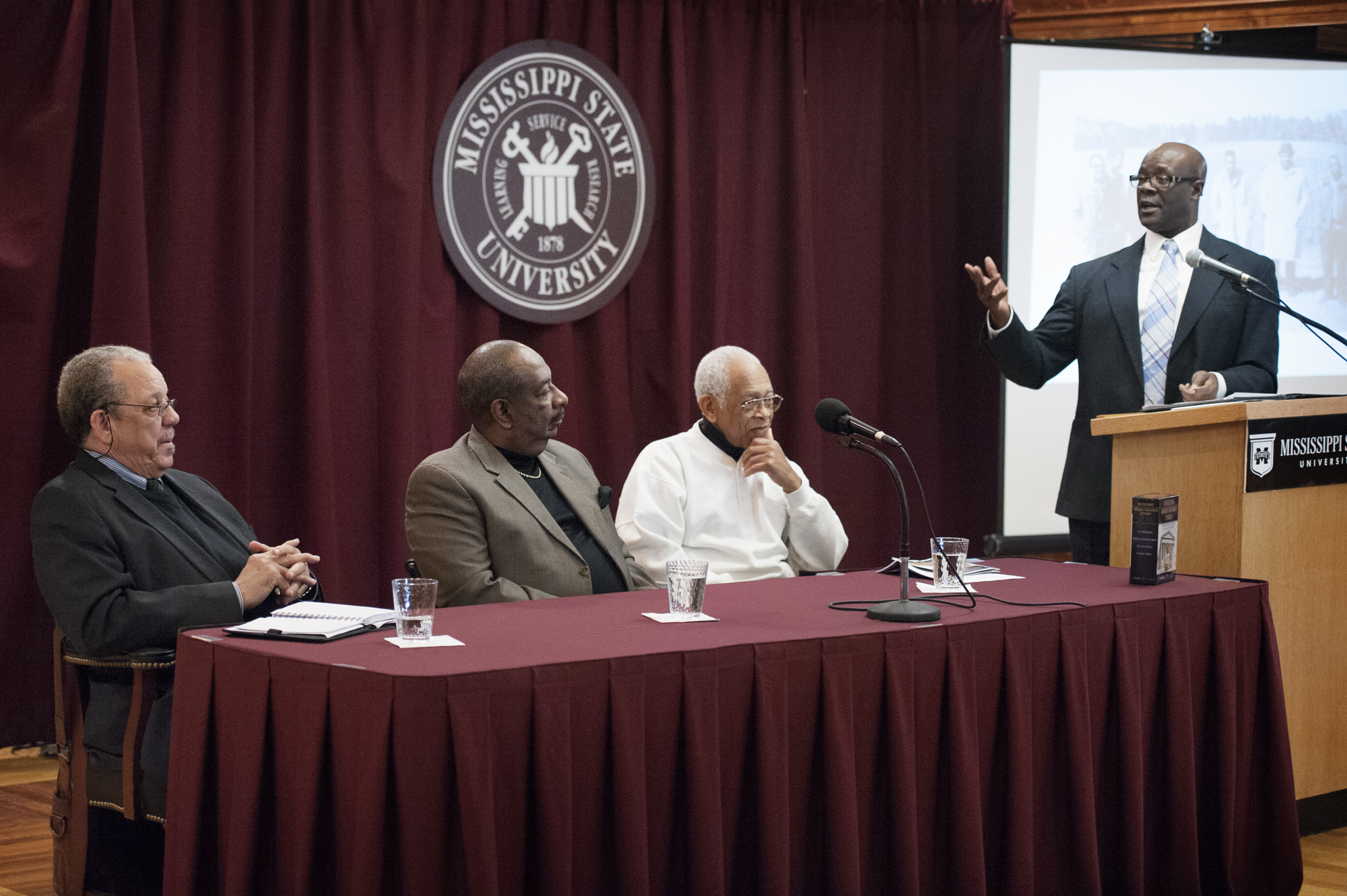Contact: Leah Barbour

Photo by: Megan Bean
STARKVILLE, Miss.--Mississippi State University hosted a group of Freedom Riders who shared their experiences on Thursday [Feb. 13] to teach subsequent generations about the many heroes of the civil rights movement.
A packed audience in the John Grisham Room at Mitchell Memorial Library heard Dave Dennis, Hezekiah Watkins and Hollis Watkins discuss their experiences. Their panel presentation was part of the library's observance of Black History Month, "Created Equal: America's Civil Rights Struggle."
Freedom Riders were civil rights activists that traveled by buses through Mississippi and other states to challenge enforced segregation of bus and station seating areas along the way. Southern states had refused to comply with U.S. Supreme Court rulings declaring racial segregation of public buses to be unconstitutional.
Freedom Riders were beaten and harassed by white protesters. They walked into segregated depots, and they were jailed. However, these hardships only reinforced these trailblazers' commitment to advocating for change.
Hollis Watkins recalled the moment he began to realize the Freedom Riders were having a national impact. When the Freedom Rides began, many African-Americans avoided the blacks who were riding and would advise others not to get involved.
"I began to see the older black population in the communities endorse what we were doing," he said. "They would see you, and even though they didn't know you, they knew what you were doing. They would give you the nod of the head, a wave of the hand, as if to say, 'Go get 'em.'"
One single person did not accomplish integration; changes were made collectively, Dennis emphasized. By understanding civil rights history, today's young people can be "tomorrow's salvation," he said.
"People don't know this history. They all think people from Mississippi were rich or cotton pickers, but the civil rights movement was not just a bunch of cotton pickers," Dennis said. "They were businessmen, they owned grocery stores, they were barbers, they owned land and they were sharecroppers."
Hezekiah Watkins said sharing the personal bravery of the Freedom Riders, as well as other civil rights activists, is critical to achieving a society where all people are truly equal
"We have to educate those people who don't know, and as a professor here, a student here or as part of the general community, we have to get out and put the word out there: People need to know what these gentlemen have done, what your relatives and ancestors have done," Watkins said.
A quality education should be affordable and available to all students, regardless of their background, race or socioeconomic status, Dennis said. As more young people learn about the civil rights movement, they become more concerned about their futures and more likely to push for progress.
"You are the ones who know best what you need," Hollis Watkins said. "We have to have a meeting of the minds about where we can disagree without being disagreeable and make collective decisions based on those who are being served."
He is a member of the Veterans of the Mississippi Civil Rights Movement Inc., based in Jackson. To learn more about the civil rights movement, Hollis Watkins encouraged those in attendance to attend the organization's March 5-7 conference.
Veterans of the Mississippi Civil Rights Movement Inc. works to preserve the experiences of Magnolia State civil rights activists and share them with younger generations to encourage leadership, engagement and action. For more, visit http://mscivilrightsveterans.com.
For more about MSU, visit www.msstate.edu.